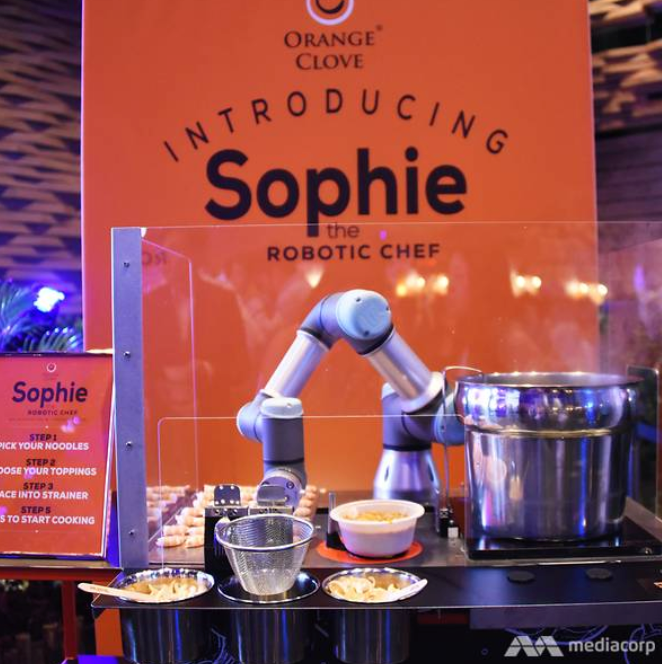According to a report by Channel News Asia (CNA), a new robot chef can prepare 80 bowls of laksa in an hour, therefore eliminating the need for human cooks, an ominous sign that robots will displace foodservice jobs in the next decade.
Last Friday, the Singapore catering group Neo Group unveiled the robot chef, called Sophie, at a catering event held at the Singapore Management University School of Law.
CNA published a video of the event, shows guest selecting their noodles and toppings, such as vegetables and seafood. Sophie then fries the noddles, adds shrimp, and at the end, pours in the laksa sauce. The entire cooking process takes about 45 seconds.
Sophie is available for corporate events. However, Neo Group didn’t provide any pricing details to CNA. The catering group will add more dishes and recipes for the robot chef station, could even integrate more robots for complicated dishes.
“The noodle station is generally the most popular live-station for hire at our catering events, therefore we have decided to develop and create an automatic noodle-cooking station. The station ensures consistency in the delivery of our recipe, and management of food waste as customers can decide their preferred portion,” said Sally Liew, Neo Group’s executive director.
“Of course, this is also an innovative launch. We believe that live cooking automatic stations stand to be the future of Singapore’s catering industry due to our labor-intensive nature and that this is just the beginning.”
The proliferation of high-dexterity robot chefs for food preparation facilities across the world could have severe implications for the workforce through the 2020s. These robots will likely displace millions of jobs by 2030.
Out of the kitchen and onto the front of a restaurant, less-dexterous robots are currently being used as hotel attendants escorting guests to their rooms, as robot carts shuttle food to tables and even deliver food to a customer’s doorstep.
These robots could significantly lower the operating costs for the foodservice industry, would result in the displacement of millions of jobs. For example, chefs, preppers, waiters, and waitresses in a restaurant could be eliminated.
Mark our words, by the mid-2020s – there will be completely automated restaurants.
via ZeroHedge News https://ift.tt/2JFSIhA Tyler Durden
